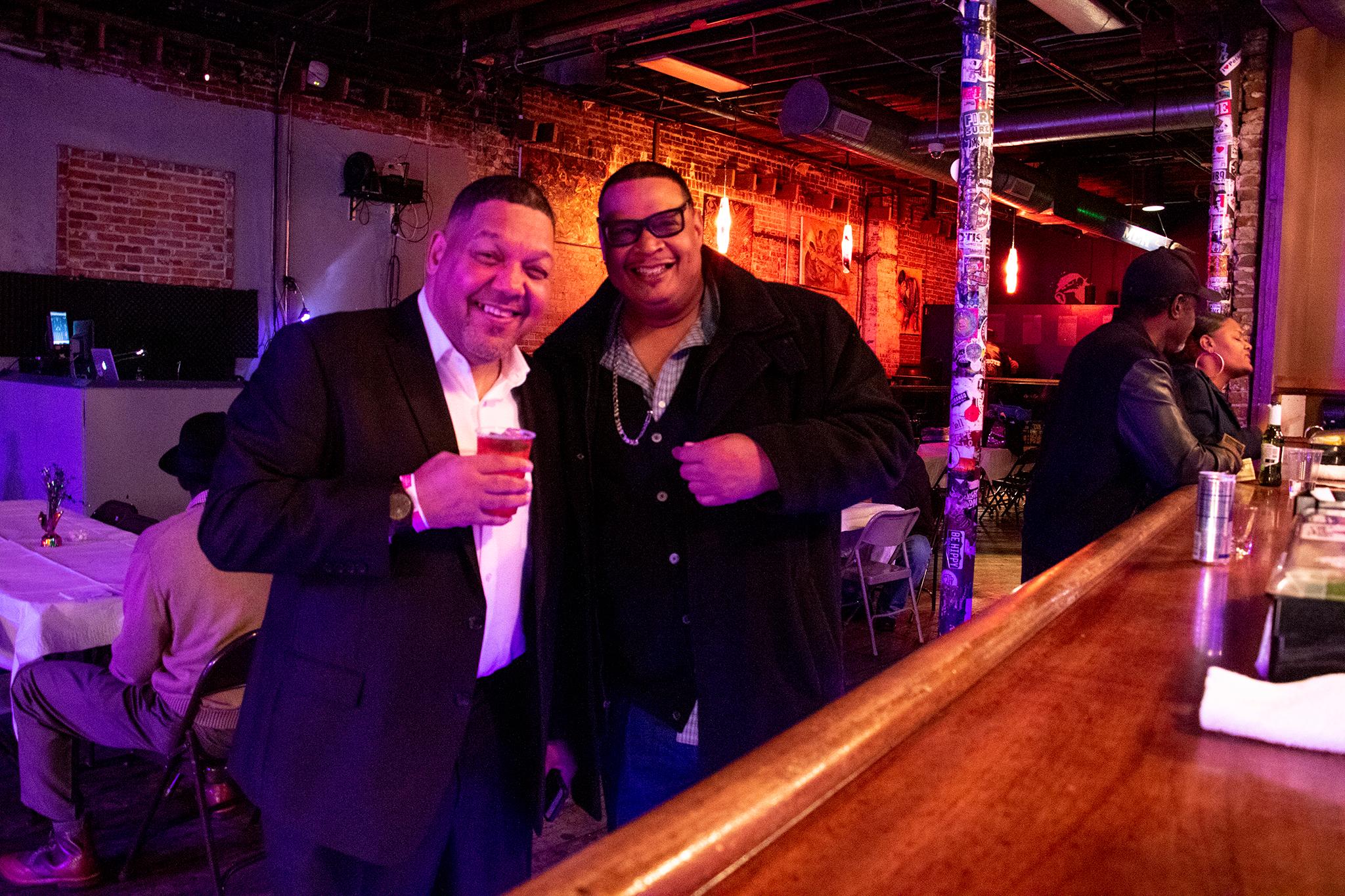Earlier this month, Randall Borne cooked up a feast of his signature cajun fare for friends and supporters who usually would have gotten their fill at his restaurant on Welton Street. But, last August, Randall's New Climax Lounge closed its doors when the building was sold to a new owner. This time, Borne's patrons were eating and dancing to support his relocation to a new address off York Street, his fourth restaurant since 2007.
Borne has been cooking in the city's historically black neighborhoods since the mid '90s, and his journey from kitchen to kitchen tells a tale of greater displacement that's been happening around Denver. And because his business was a recipient of relocation support from the city, which is poised to expand this year under the 2019 budget, his path forward might also be a sign of more to changes to come.
Brother Jeff Fard, a long-time community advocate and documentarian based in Five Points, attended Borne's fundraiser, which was organized by City Councilman Albus Brooks.
"When you follow the trajectory of Randall and where he is at today," Fard said, "that story will basically unfold into the larger story of displacement, gentrification and the scattering of the community."
Borne began with a food truck and catering business in 1995 that served customers at 48th Avenue and Dahlia Street. Then, in 2007, he took over Marion's Lounge at 40th and York. By 2009, A Line construction had come through and wiped Marion's off the map. So, he relocated to Pierre's Supper Club, a major establishment in Five Points that once sat at 22nd Avenue and Downing Street, and renamed it Randall's at Pierre's. But, in 2014, that also closed after a developer bought the building to raze it for townhomes. So Borne moved again, this time to his most recent location on Welton.
"I made a complete loop," he said, now that he's heading back to York. He has "no doubt" it's "the growth and gentrification" that's sent him on his way again.
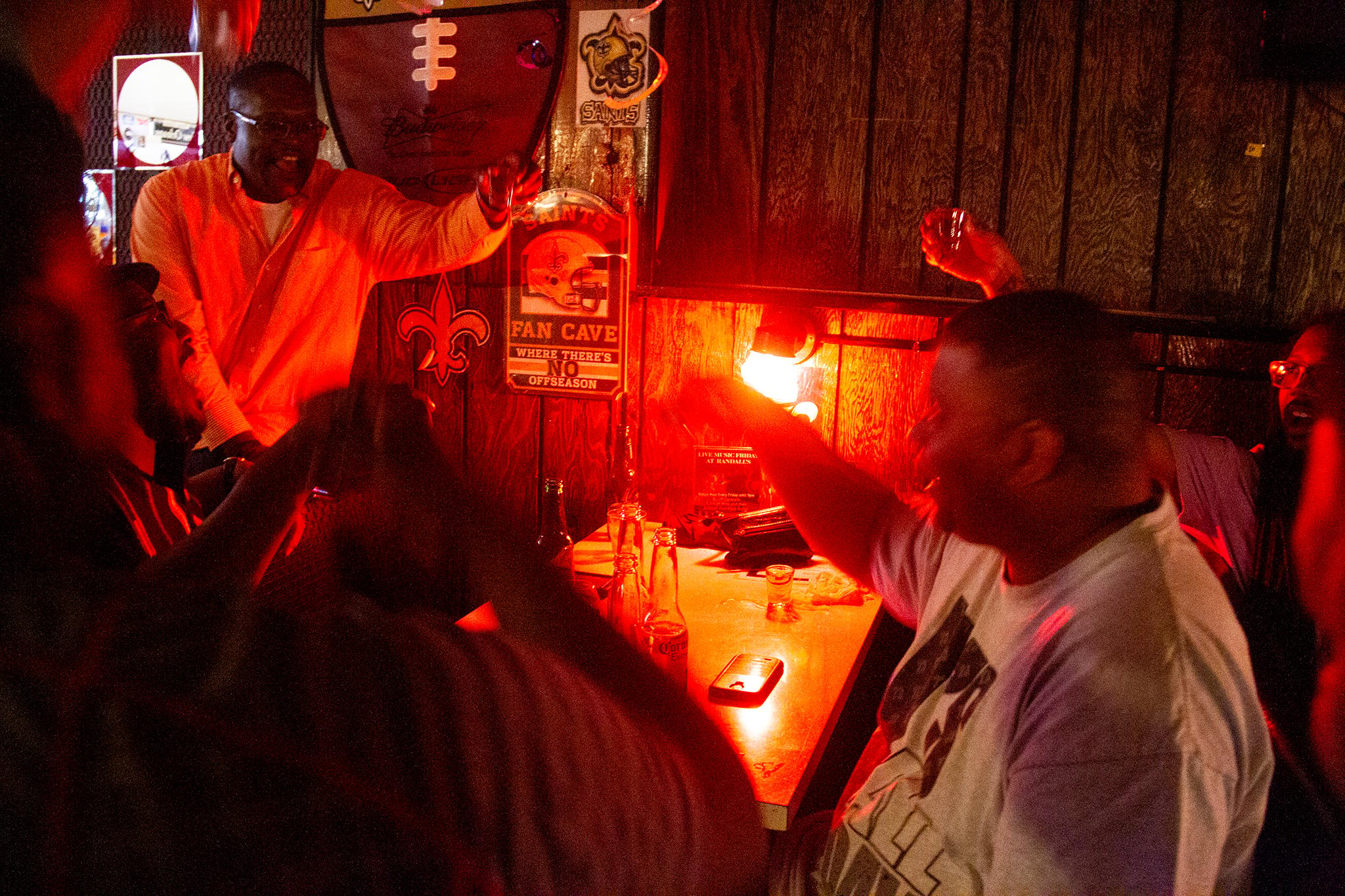
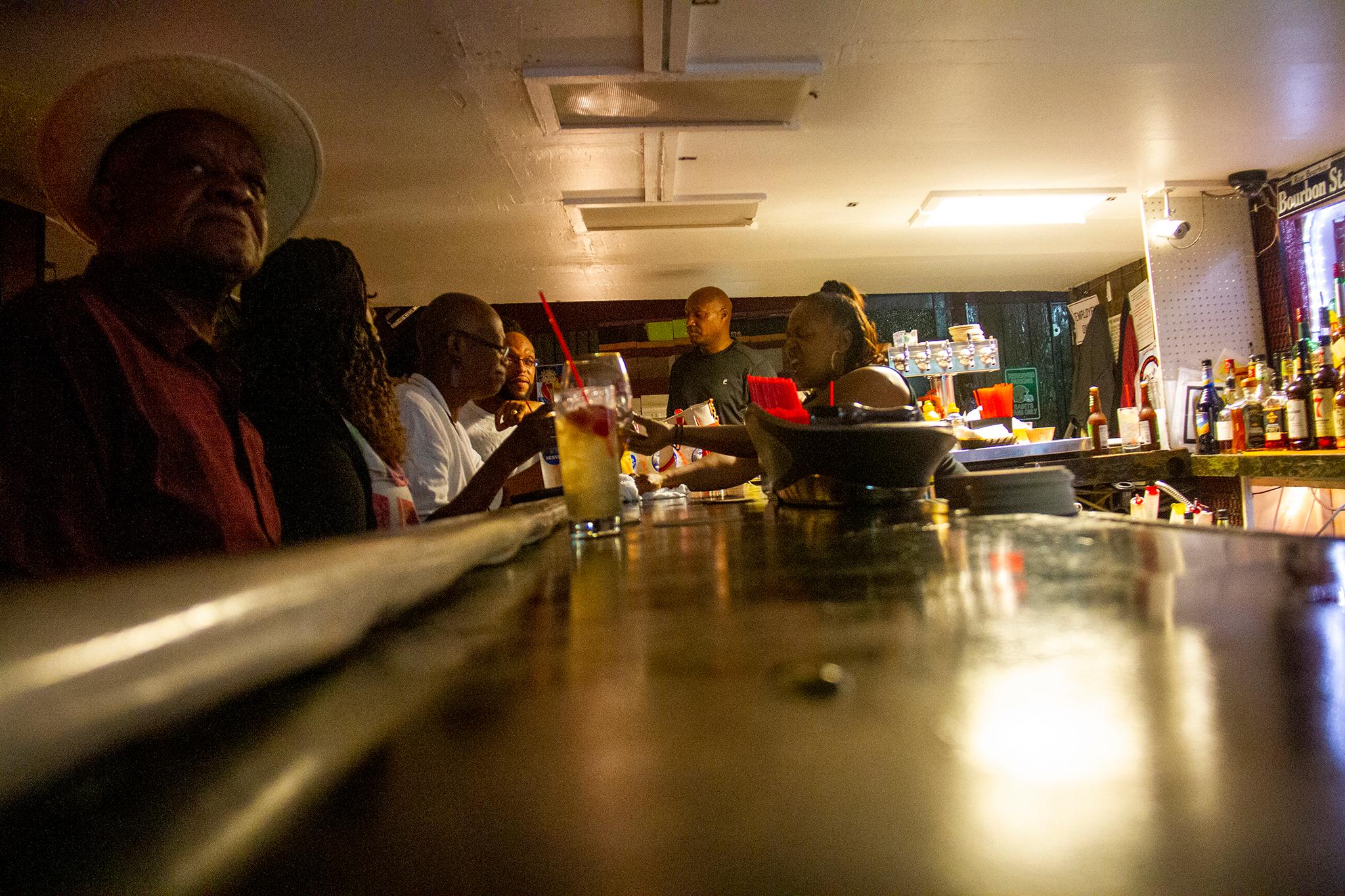
The loss of Pierre's, specifically, stood as a sign that Five Points was moving into a new era.
"It was social hub, but it was also a political hub," Fard said. It was an institution even before Borne took over its kitchen.
Wellington Webb and his staff could often be found there when he was mayor. It was a place black Denverites could go "if you wanted to see how city politics was working or you wanted access to politicians that looked like you," Fard said.
Walter Wilder, a longtime friend of Borne's who showed up early for the fundraiser, said Pierre's closure really hurt him: "It meant a lot to me."
Borne said he used to be upset by all the changes taking hold of the neighborhood, but these days he just focuses on his next move.
"It's crazy how much it's changed," he said. "There's nothing I can do about it. I was tired about being upset about it."
Now, Fard said, shiny new apartment complexes along Welton Street are the most omens of change, especially the big block of them across from Borne's old bar.
Edward "Too Tall" Walker, who's long played softball on a team that Borne has sponsored and has known his family for years, said it's just the way it goes.
"Downtown is moving east, and we got swallowed up," he said. "Rent is getting expensive."
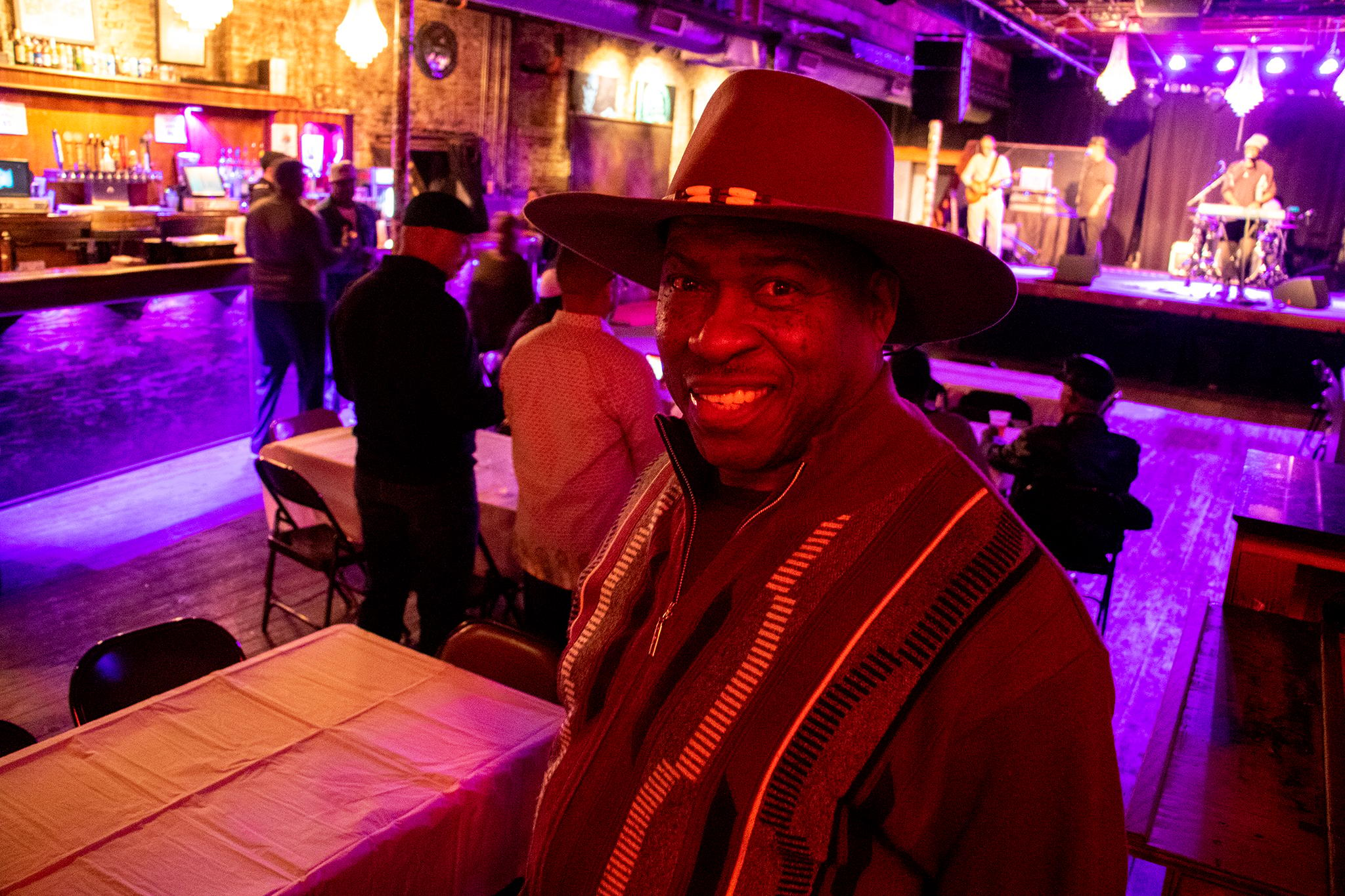
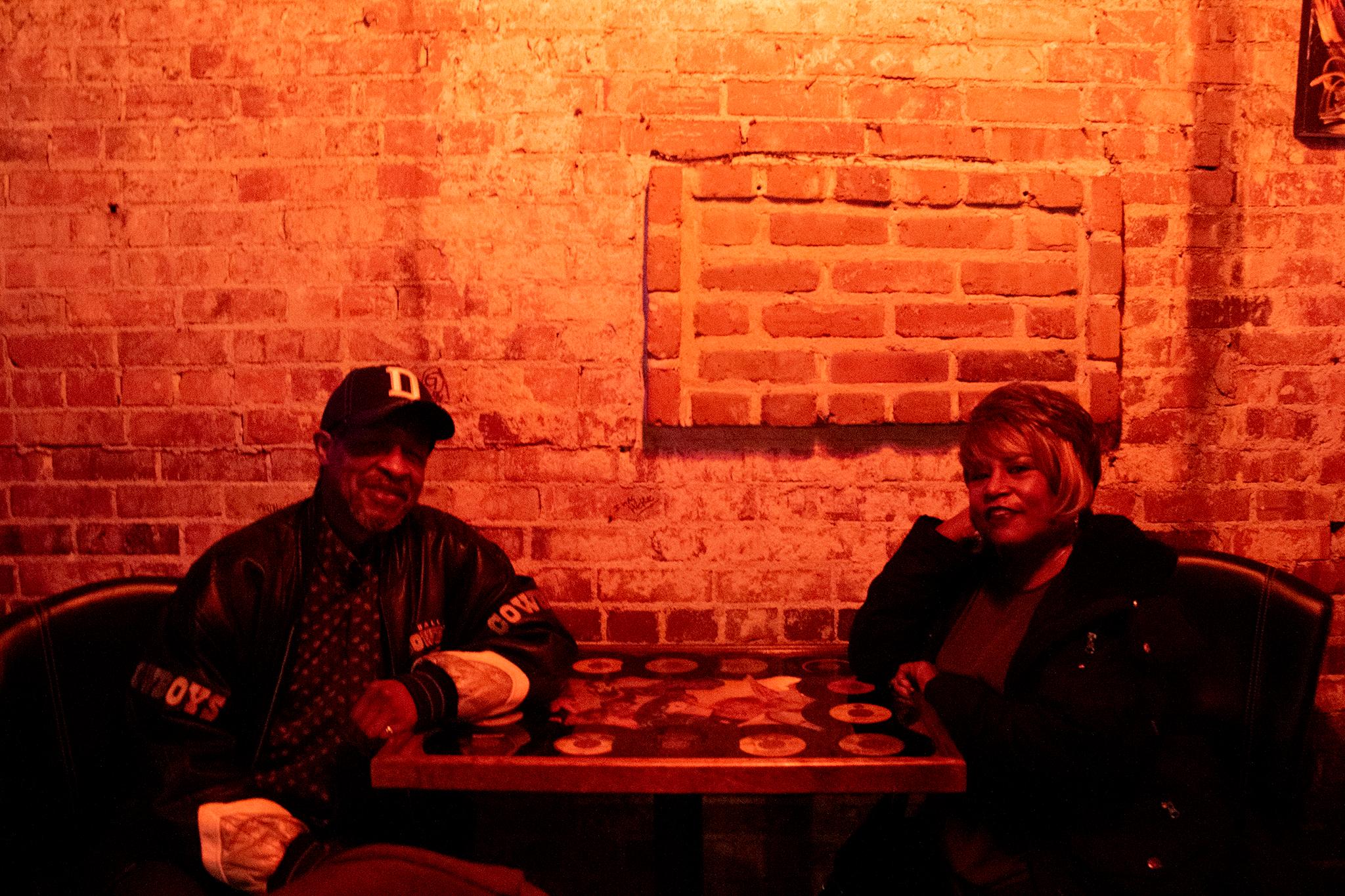
Wilder said Borne's displacement is more an issue of small business clashing with corporate power.
But Fard said the forces that have marginalized Denver's black and brown communities are one in the same with the corporate struggle Wilder described. There are economic "apparatuses" in place that have long been slanted against mom and pop store owners on a street like Welton.
"If it is about big business, it's because the city has opened the door to big business, to the demise of culture," Fard said. In that case, he added, Borne's relocation over the years is actually "more of a symbol of black resilience" to changing tides.
Kathy Stephenson, who sat across from Wilder at the fundraiser, said Borne's business will continue to thrive when he's back on his feet.
"Wherever he goes, he will have a crowd," she said, everyone's just waiting for him to open up again.
But moving isn't easy, and Borne needed help.
Some of that came from loyal customers getting him into the next location, a move he said will cost about $90,000. But the city has also stepped in.
Borne is receiving some funds from the city's Office of Economic Development (OED) through a pilot "Retail Incentive Fund" program established in 2014. As that program winds down, OED is preparing to take on an additional $400,000 as part of the city's 2019 budget that's specifically meant to help small business owners who are facing displacement or who have limited access to money to start up or expand.
Derek Woodbury, spokesperson for OED, told Denverite his office has been talking with Borne since he left Pierres'. They've been providing funding in the form of reimbursements for his latest move.
"Our goal was to help the business get to a long-term lease, which has now happened," he said, although he added that it's unusual for OED to work with a business that's been displaced twice in such short a time span. Borne's was one of three businesses that benefited from the retail pilot fund.
The $400,000 fund is still being set up for distribution, and it might be a sign of the times.
"We have increasingly seen, in some neighborhoods, small businesses are facing displacement," he said, one reason the money was made available.
In 2016, OED released a gentrification study that recommends providing business services, like those being offered to Borne, to help "mitigate commercial displacement."
Woodbury said it's important that the impacts of growth to small enterprises in Denver's most changing neighborhoods is crucial.
"Authentic, unique businesses," he said, "really make our neighborhoods come alive."
Councilman Brooks told Denverite that it doesn't take having an inside connection for other business to access this kind of funding. Woodbury said a lot of the people who come into the office do come through referrals from council representatives or partnering organizations, but anyone who's curious about accessing supportive money for small businesses can contact the office or attend their open hours at The Commons on Champa (walk-ins welcome, appointments preferred).
Fard said he's happy that the community and the city stepped up to help Borne find his way to a new kitchen, but he wishes it never would have come this far in the first place.
"I would like city policy in place [so that] that relocation costs aren't necessary," he said. "What about the perspective of: you don't have to move?"
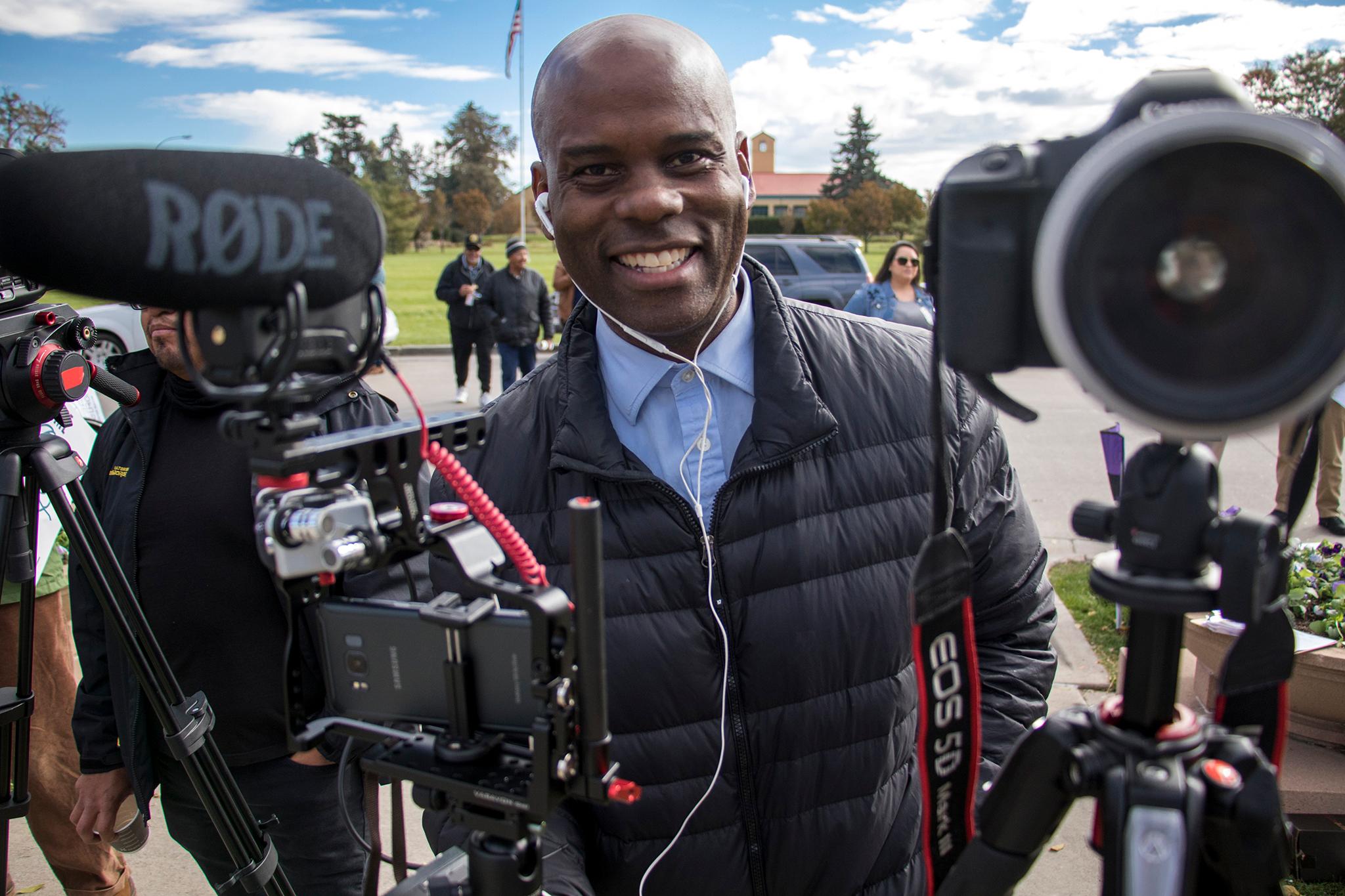
For his part, Borne said he's confident he'll be on his feet in no time, even though the move has been stressful and it's "killing" him financially.
"Everything's coming together," he said. "We'll get by. We'll survive."
And that softball team he's sponsored year after year? Yep, they'll still be called The Randalls.
Correction: Due to a reporting error, this story initially stated Borne has gotten OED funding since he left Pierre's. Borne said it did not begin until the New Climax Lounge closed.

